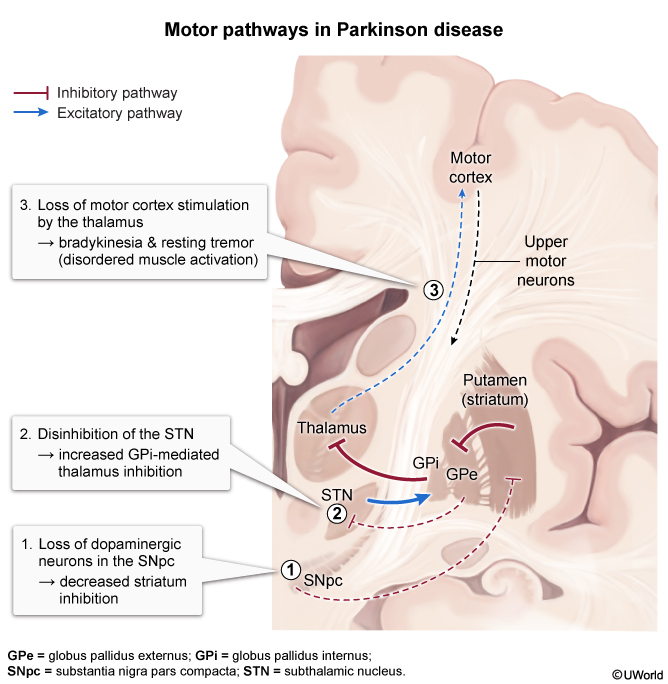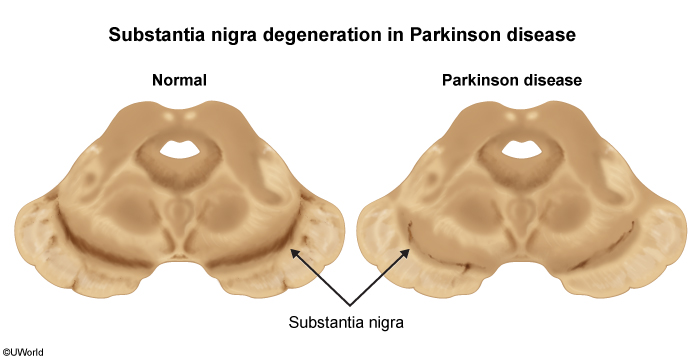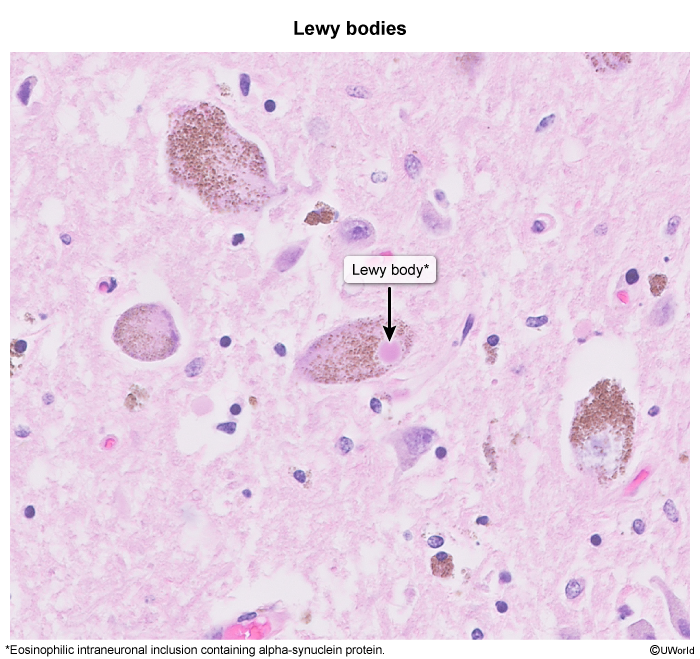Parkinson Disease And Parkinsonism
Article Sections
Introduction
Parkinson disease (PD) is a progressive neurodegenerative disorder and the most common cause of parkinsonism (bradykinesia PLUS either tremor or rigidity).
Risk factors
- Age: Advancing age is the biggest risk; the average age at diagnosis is 60. Early-onset PD (age <50) represents ~10% of patients and is more likely to be familial/genetic.
- Genetics: Having a first-degree relative with PD elevates risk by threefold. Monogenic forms account for <10% of PD and include single-gene mutations with autosomal dominant inheritance like SNCA (encodes alpha-synuclein) and LRRK2 (most common mutation); genes with autosomal recessive inheritance include Parkin, PINK1, and DJ-1.
- Gender: Men have a higher risk (estrogen may have a protective effect).
- Environmental factors: Exposure to certain toxins (eg, herbicides, pesticides, solvents) may be a risk factor. Severe or repetitive traumatic brain injury (eg, boxer Muhammad Ali) is associated with increased risk.
Continue Learning with UWorld
Get the full Parkinson Disease And Parkinsonism article plus rich visuals, real-world cases, and in-depth insights from medical experts, all available through the UWorld Medical Library.
Unlock Full AccessFigures

Figure 1

Figure 2
Images

Image 1
Tables
Table 1